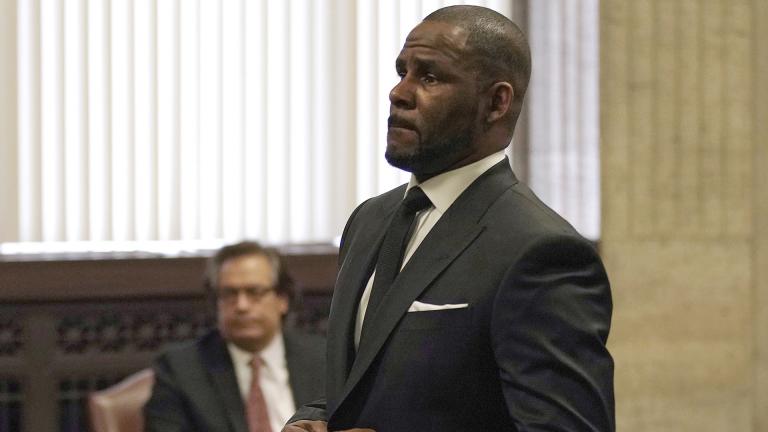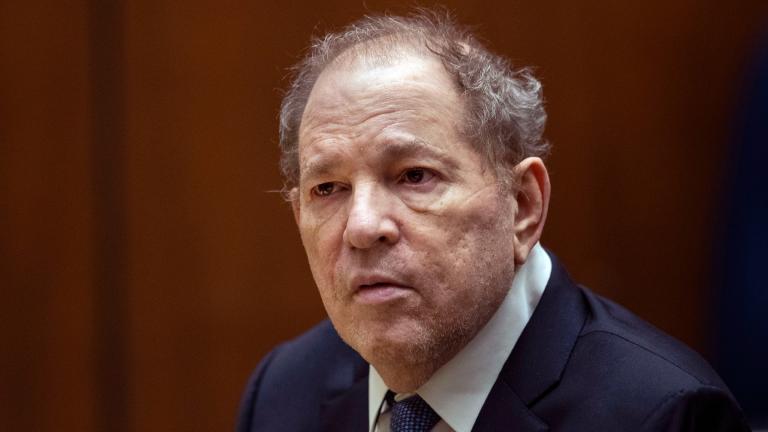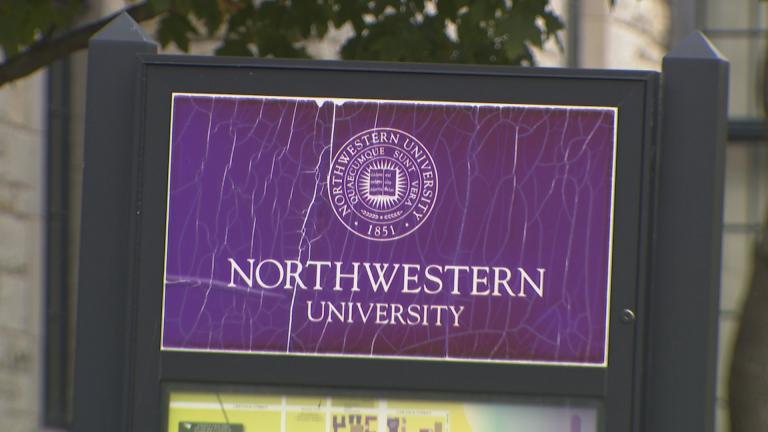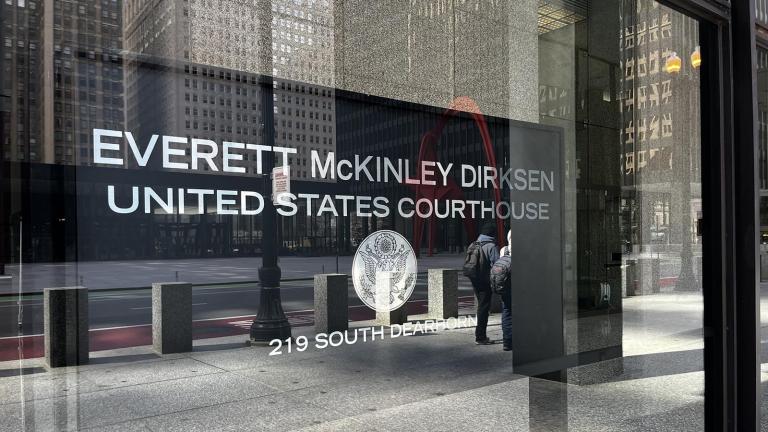Illinois will become the first state in the nation to entirely eliminate cash bail after the Illinois Supreme Court upheld a contentious portion of the criminal justice reform law known as the SAFE-T Act in a decision released Tuesday.
In a 5-2 ruling, with Republican justices dissenting, the state's highest court found that the elimination of cash bail is constitutional and will take effect statewide beginning Sept. 18, overturning a lower court ruling that had put that implementation on hold and handing Gov. J.B. Pritzker a major victory.
“Our constitution creates a balance between the individual rights of defendants and the individual rights of crime victims,” the majority of the court wrote in its ruling. “The act's pretrial release provisions set forth procedures commensurate with that balance. For the reasons that we have stated, we reverse the circuit court's decision to grant summary judgment in favor of plaintiffs.”
The lawsuit over cash bail pit the state’s Democratic governor, attorney general and legislative leaders against roughly half of Illinois’ state’s attorneys, as well as county sheriffs.
Just before cash bail was set to be eliminated Jan. 1, Circuit Judge Thomas Cunnington issued a ruling putting that plan on hold. Cunnington found the pretrial provisions of the SAFE-T Act violated the separation of powers principle and wrote that had state legislators wanted to enact such a sweeping change, “they should have submitted the question on the ballot to the electorate at a general election.”
Illinois Attorney General Kwame Raoul swiftly filed an appeal to that ruling before the Illinois Supreme Court.
The state’s attorneys claimed that in eliminating cash bail, the General Assembly violated state constitutional provisions.
Raoul argued the state's attorneys had taken too expansive a view of judicial power and too narrow a view of the legislature’s authority. The state Supreme Court sided with the attorney general's argument that the General Assembly has a long history of setting public policy that governs what happens when a defendant is awaiting trial and that overturning major provisions of the SAFE-T Act would jeopardize years of law that serve as the scaffolding of Illinois’ sentencing procedures.
The high court found that Cunnington’s ruling “ignored the plain language of the constitution,” noting that the Illinois bail clause does not include the term “monetary,” and thus “did not cement the practice of monetary bail.”
Pritzker on Tuesday said he was pleased with the court’s decision, which will now allow Illinois to “move forward with historic reform.”
“My thanks to Attorney General Raoul’s office and the many people who worked tirelessly over the last months to defend these important reforms,” he said in a statement. “I look forward to continuing to work with the General Assembly and our many other partners as we transition to a more equitable and just Illinois.”
Reform advocates have for years said cash bail unfairly punishes poor defendants by keeping them locked up in jail before trial — not because of any risk they pose — but simply because they cannot afford to pay their set bail amount.
Under the current system, when someone is arrested for a crime, they appear before a judge who decides whether that person must remain incarcerated or whether they can be released from jail while awaiting trial.
Under the Pretrial Fairness Act, that will no longer be the case.
Those arrested for certain crimes — including first- and second-degree murder, predatory criminal sexual assault of a child, aggravated criminal sexual assault and criminal sexual assault, robbery and burglary “where this is use of force against another person,” residential burglary, home invasion and vehicular invasion — can still be denied pretrial release.
Once the Pretrial Fairness Act takes effect, people arrested will now appear before a judge for an initial hearing, where conditions for release can be set. If that person is eligible to be held without bail, prosecutors can then seek a detention hearing, where a judge will determine whether or not the person would be released from custody or detained pending trial.
That decision is made at a judge’s discretion based on factors including the defendant’s likelihood to flee or any public safety risk they may present. If a judge decides a defendant does not pose a public safety or willful flight risk, then they will be released without being required to post any money.
Additional amendments have helped to spell out how that process will work.
Once this change officially takes effect, defendants currently in jail because they couldn’t pay their cash bail can request also hearings to decide if they should be released.
Cook County State’s Attorney Kim Foxx, who also pushed for the elimination of cash bail, called the ruling “a monumental milestone toward achieving equal justice for all in Cook County and Illinois.”
“ It is our responsibility to address the historic inequities in our justice system,” she said in a statement. “Everyone deserves a fair shot at justice, regardless of their zip code, paycheck, or the color of their skin. Ending cash bail is in line with our values and is a critical step toward economic and racial justice in Cook County and Illinois, which is why I have supported and advocated for its end from the beginning.”
State’s attorneys across Illinois now have just over 60 days to prepare for the cash bail to officially be eliminated, but Foxx said her office was ready to go when the change was supposed to take effect at the start of the year.
“The Cook County State’s Attorney’s Office has been working over the course of the last two-and-a-half years with our county stakeholder to be prepared,” she said during a press conference. “On Dec. 31, we were ready, all of us were ready to go into that courtroom on Jan. 1.”
Illinois Senate Republican Leader John Curran, of Downers Grove, called for the state legislature to hold a special session he said is necessary to address concerns from law enforcement and others opposed to the elimination of cash bail.
He claimed the SAFE-T Act “handcuffs law enforcement and judges” by making it more difficult to combat violent crime.
Jim Rowe, the Kankakee County state’s attorney who filed the suit seeking to overturn the cash bail provision, called the Supreme Court’s ruling “disappointing” and the SAFE-T Act “terribly detrimental to public safety.” But he also added that, following that ruling, “we must abide by the decision and will continue to do our best to serve the people of Kankakee County.”
“Despite the defeat, I could not be more proud of all who fought the good fight,” he said in a statement on Facebook. “The people of Illinois deserve better than bail reform that is passed under cover of darkness at 4am when all the state was sleeping; they deserve to have a voice in any constitutional amendments thru the power of their vote; and they deserve to be governed by a government of, for and by the people - not by legislative or gubernatorial fiat. That was the essence of our lawsuit and we stand for those principles still today.”
Amanda Vinicky contributed to this report.
This is a developing story.
Contact Matt Masterson: @ByMattMasterson | [email protected] | (773) 509-5431








